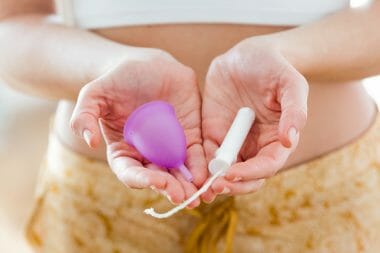Women normally start looking for signs of ovulation when they are working on getting pregnant. The idea is to find the exact day when you are ovulating and then get as much sex in those few days as you can, to increase your chances of making baby. That would be fine idea if we were all made the same way, if our menstrual cycle lasted the same number of days, if things happened according to the rules and books. But, fortunately, we are all different. Our bodies work in a slightly different way, not wrong, just different. So, to spot the symptoms of ovulation means knowing our bodies, and knowing what to look for. While it is good to know the common ovulation symptoms so that you can look for them, most of them are by no means a sure thing. There are many myths out there, because the symptoms may be present or they may not, while we are happily ovulating.
Signs of Ovulation: Myth # 1
Sure sign of ovulation is increase in the quantity of cervical mucous. In most women, due to the increase in hormonal production before and during ovulation, cervix (the ” Ëœneck” ™ of the uterus) produces more mucous. Mucous will also become more slippery and have the consistency egg white. The quantity and consistency of cervical mucous varies greatly from one woman to another. This cervical secretion plays important role in enabling sperm to swim easier towards the egg. The same liquid, in different stages of menstrual (and hormonal) cycle plays the role of the protector of uterus from bacteria, by changing its composition. If you have a regular cycle and are not taking any medication, you can monitor the quantity and consistency of your mucous and establish a pattern of change. That way you will have your own, personal symptom of ovulation. Combined with some other ovulation symptoms, it can give you a pretty certain information when you are ovulating.
Signs of Ovulation: Myth # 2
Your sex drive increases around and during ovulation. It is certain that hormonal changes during ovulation may affect woman’s sexual drive. After all, it is nature’s way of ensuring reproduction. But, sexual drive can be increased by a glass of red wine, a sexy movie, or many other things which are different from one woman to another.
Signs of Ovulation: Myth # 3
The cervix changes its position during ovulation. It is true that in most women with regular cycle the cervix will be easier to spot during ovulation because it will be higher and softer and more open. It is the sign that it is ready to receive sperm. But, the signs are not the same with each woman. Most women do not even know where their cervix is and do not monitor it. Also, it requires a lot of experience to judge the ovulation by the cervix position and look.
Signs of Ovulation: Myth # 4
Breasts become more tender around ovulation. This may be true, but they also become more tender before your period or when you are aroused.
Signs of Ovulation: Myth # 5
You may feel pain or cramping at the time of ovulation, similar to those you feel when your period is coming. But, you may not, just like there are women who do not feel menstrual cramps.
There are many other signs that might signify that you are going through ovulation, such as bloating, swollen vagina, moodiness, headache or spotting. As the estrogen level in your body increases before the ovulation and at some point causes a rapid increase in luteinizing hormone, your mature egg gets the last push towards the fallopian tubes and towards potential fertilization. Whether you feel it happening and have one or more of the common symptoms is very individual and some women have no symptoms whatsoever. You should not feel bad if you do not feel any symptoms. Regular sex three or four times a week will ensure conception if everything is right, and you will definitively feel the symptoms of your baby coming, sooner or later.
Your Action Steps:
- 1Estimate your ovulation date with our Ovulation Calculator (click here)
- 2Check out our section on PCOS to see if a hormone imbalance could be affecting you. (click here)
- 3Get a fertility monitor to know precisely when you are ovulating. (click here)
- 4Read our articles on fertility and ovulation. (click here)






